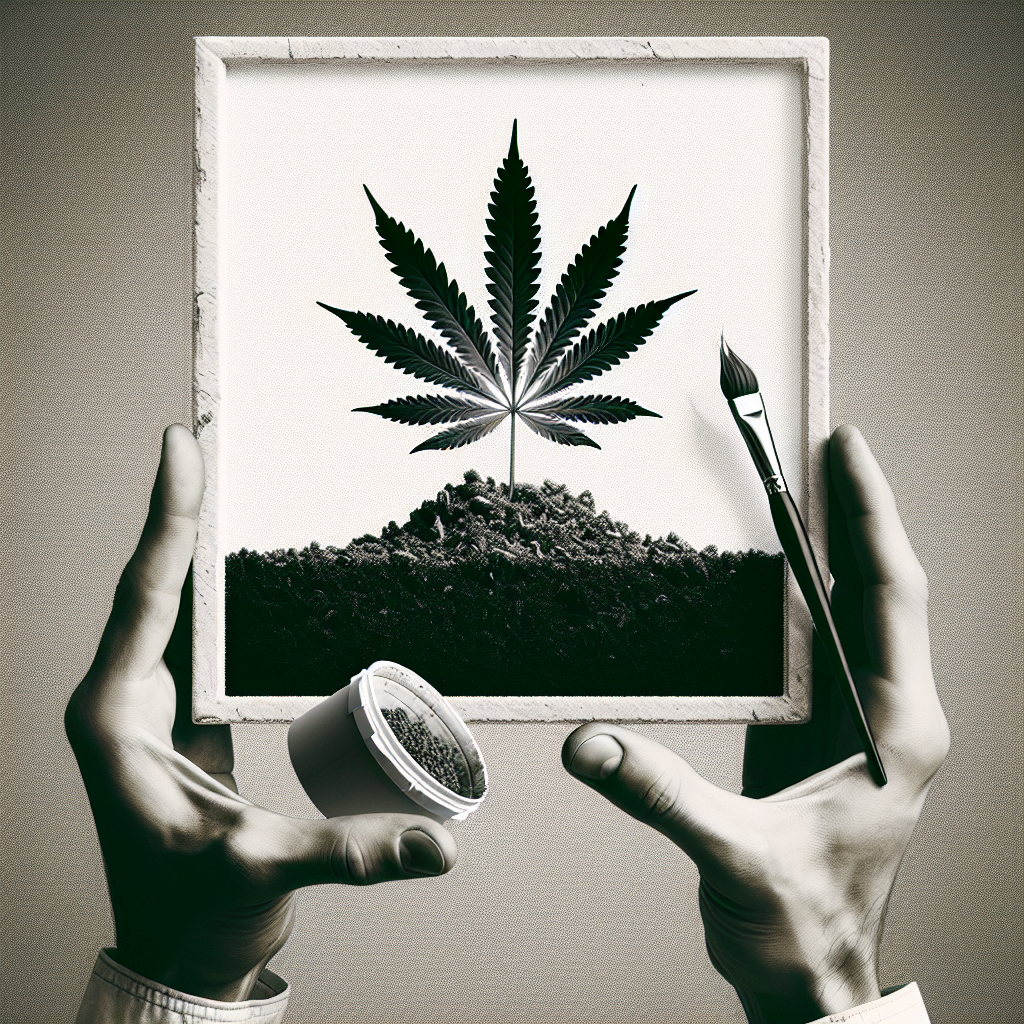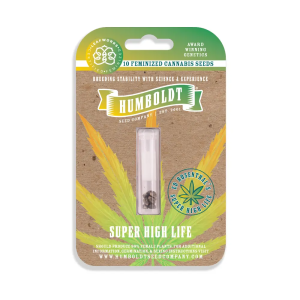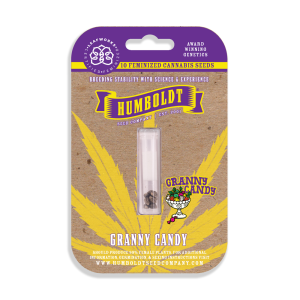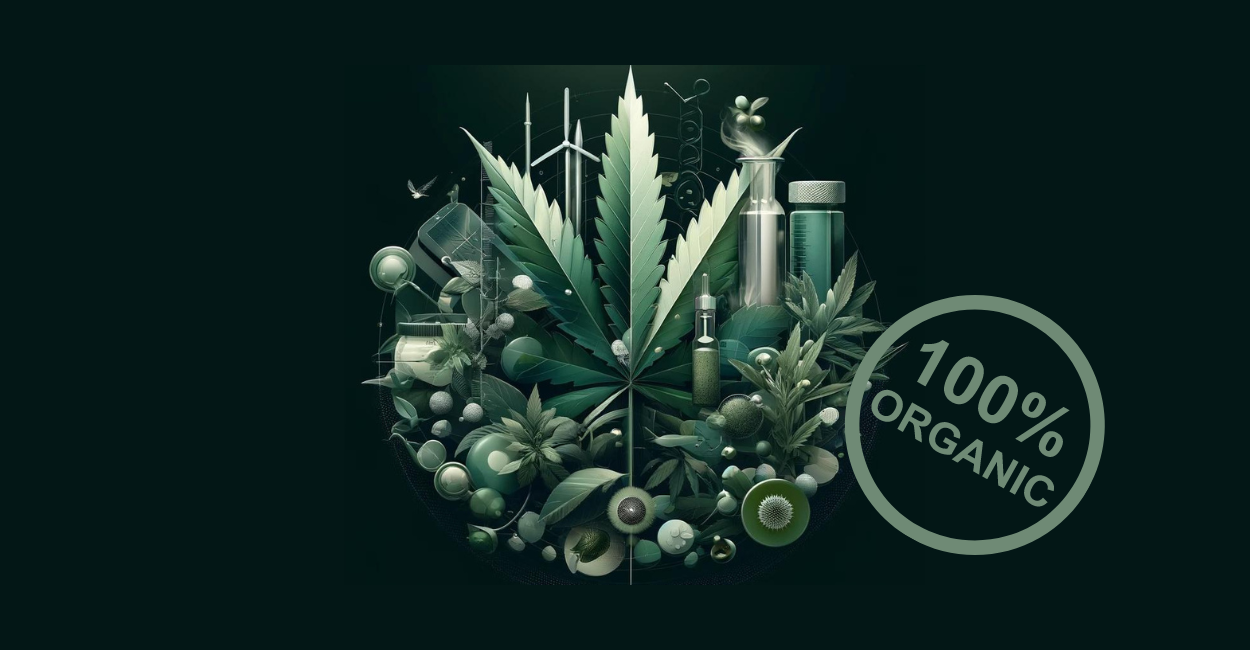Estimated reading time: 10-12 min.
Table of Contents
- The Importance of Biodiversity in Cannabis Seed Cultivation
- Organic Cannabis Seed Cultivation Techniques
- The Role of Organic Certification in Hemp Seed Cultivation
- Common Challenges in Recreational Cannabis Cultivation
- The Future of Organic Cannabis Cultivation
- Cannabis for Recreational Use
- New Era of Cannabis Cultivation in Germany
- Cannabis Cultivation Calendar 2024
- Conclusion
Introduction to Organic Cannabis Cultivation
Cannabis cultivation is an art form that is constantly evolving, refined by new insights and techniques. At the heart of modern out- and indoor cannabis cultivation is the shift toward sustainable and ecological growing methods. The organic cultivation of cannabis seeds, also known as organic cannabis cultivation, is gaining increasing importance. It represents not just a method of cultivation but a philosophy grounded in the principles of nature conservation and soil health enhancement.
The Importance of Biodiversity in Hemp Seed Cultivation
Beneficial Insects in Cannabis Cultivation
Useful insects and their role in ecological cannabis cultivation. Learn how employing beneficial insects can introduce natural pest control into your cannabis garden.
Biodiversity, the biological variety of life forms, is a key element for the success and sustainability of organic cannabis seed cultivation. A high degree of species diversity within an ecosystem contributes to stability and resilience against environmental influences. In hemp seed cultivation, biodiversity ensures a balanced system where pests and diseases are naturally regulated, and the soil remains fertile.
But the benefits of biodiversity extend beyond pest and disease control. It also promotes pollination and helps in nutrient binding in the soil, leading to healthier and more resilient cannabis plants. Diversifying cultivation systems also creates natural habitats for a variety of organisms, contributing to ecological health and balance.
Interestingly, biodiversity can also directly influence the quality of the produced hemp. Studies show that a rich species diversity in and around cannabis fields can affect the terpene profile of the plants, which in turn alters the flavors and medicinal properties of the end product. For growers, this means that promoting biodiversity is not only an ethical decision but also a smart business strategy that leads to a unique and high-quality product.
Organic Hemp Seed Cultivation Techniques

Utilizing organic soils and fertilizers is a cornerstone of organic hemp seed cultivation. Organic soils are teeming with microorganisms and nutrients essential for cannabis plant growth. Natural fertilizers like compost or worm castings not only provide necessary nutrients but also support healthy soil life and enhance soil structure and fertility.
Beyond basic care, organic cultivation techniques enable sustainable and environmentally friendly cannabis production. Employing green manure and integrating beneficial insects and microorganisms creates a healthy ecosystem that protects plants from pests and diseases without needing harmful chemicals.
Another critical aspect of organic cultivation techniques is irrigation practices. Efficient watering systems, such as drip irrigation, save water while ensuring plants receive the right amount of moisture. These techniques not only reduce water usage but also minimize the risk of root rot and other water-related issues.
Additionally, organic cannabis cultivation offers exciting opportunities for innovation, like using aquaponics systems, where fish and plants coexist in a closed water cycle. This method leverages the natural waste of fish as a nutrient source for cannabis plants, creating an extremely sustainable and efficient cultivation system.
To further enhance the effectiveness and sustainability of organic growing methods, many growers turn to advanced technologies like sensors and data analysis to determine optimal growth conditions for their plants. These precise cultivation techniques not only lead to higher quality and yield but also help minimize the ecological footprint of cannabis cultivation.
The Role of Organic Certification in Hemp Seed Cultivation
Organic certifications ensure that hemp seed cultivation adheres to strict ecological standards. These certifications, awarded by recognized organizations like Ecocert, are based on guidelines that prescribe the avoidance of synthetic fertilizers and pesticides and the adherence to practices that preserve soil and environmental health. An organic certification is a quality feature that gives consumers confidence in the products.
However, organic certification is more than just a label; it is a promise to the consumer and a testament to the producer's dedication to sustainable and responsible cultivation methods. For producers, obtaining an organic certification is not just recognition of their hard work and commitment to the environment; it also opens doors to new markets and customer segments that value sustainability and health.
To obtain organic certification, cannabis growers undergo a comprehensive audit process that includes not just the end products but the entire cultivation cycle, from seed selection to harvest. This process ensures that every step in the production chain meets the highest standards and promotes transparency and trust in the cannabis industry. For more details on the specific requirements and processes, refer to the EU regulations for organic products.
Interestingly, organic certification also opens the door for innovative research and development in the field of organic hemp cultivation. Producers who employ organic methods often experiment with advanced cultivation techniques and technologies to increase efficiency and further reduce environmental impact, ultimately contributing to the industry's overall development.
Organic certification also helps to build a community of producers, consumers, and professionals who are committed to a more environmentally friendly and healthier future for the cannabis industry. This network promotes the exchange of best practices, knowledge, and innovations, driving the industry forward and creating a more sustainable economic model.
Common Challenges in Recreational Cannabis Cultivation

Cultivating cannabis for recreational purposes faces a range of legal and regulatory challenges. Legislation varies significantly from country to country and often within countries. Producers must navigate complex regulations that govern the cultivation, sale, and consumption of cannabis products. These legal frameworks can be burdensome for producers, requiring a high level of attention and adaptability.
Beyond legal aspects, cannabis producers for the recreational market must also meet high quality and safety standards. Consumers expect a product that is not only effective but also safe and free from contaminants. This demands rigorous control of cultivation methods and transparent documentation of processes from the producers.
Market dynamics present another challenge. The cannabis market is highly competitive, and producers must contend with a rapidly changing industry, evolving consumer preferences, and intense price pressure. Differentiation through quality, branding, and customer experience is becoming increasingly vital for success in this competitive environment.
In addition, cannabis producers are under pressure to operate sustainably. Consumers and regulatory bodies are increasingly demanding eco-friendly cultivation practices and a reduction in the cannabis industry's ecological footprint. This requires producers to invest in sustainable technologies and processes that are not only environmentally friendly but also economically viable.
Adapting to these diverse challenges requires cannabis producers to be agile, innovative, and deeply understanding of their customers' needs and the regulatory landscape. Successful producers are those who can quickly adapt, continuously learn, and optimize their business models accordingly.
The Future of Organic Hemp Cultivation
The future of organic hemp cultivation looks promising as consumers increasingly value sustainable and healthy products. Trends such as cultivating cannabis strains with specific active ingredient profiles or utilizing modern technologies to boost efficiency are shaping the industry. Innovations in genetics, soil science, and cultivation techniques are advancing the market, allowing producers to continuously improve and refine their methods.
In addition to growing environmental awareness and demand for organically grown products, the future of organic cannabis cultivation will also be influenced by advances in agricultural technology. Intelligent farming systems based on artificial intelligence and machine learning could enhance efficiency while minimizing resource consumption.
An exciting aspect is the potential integration of vertical farming concepts into cannabis cultivation. This method, where plants are grown in stacked layers under controlled conditions, could reduce space requirements and maximize yield while reducing water and fertilizer use.
Organic certification is expected to gain importance as it offers consumers transparency and security. Blockchain technology could play a key role in this area, providing seamless traceability and verification of the organic origin of cannabis products.
Ultimately, the future of organic cannabis cultivation might also be shaped by increased collaboration between researchers, farmers, and the industry to further develop sustainable growing methods and overcome existing challenges. Such synergies could help establish organic cannabis cultivation as a standard for sustainability and quality in agriculture.
Cannabis for Recreational Use
The World of Marijuana: Insights into Cannabis and Hemp
The legislation surrounding the consumption, possession, cultivation, and trade of marijuana varies greatly worldwide, ranging from severe penalties to full legalization. For your cultivation endeavors, we offer a selection of high-quality marijuana seeds that comply with the varying legal frameworks.
The acceptance of cannabis for recreational use is growing worldwide, and more countries are rethinking their cannabis policies. This shift leads to a wave of legalization, facilitating access to cannabis products and creating new opportunities for producers and consumers. With legalization, the demand for high-quality and ecologically grown cannabis products rises.
This change in the social and legal environment also cultivates a new culture around cannabis use. Consumers are increasingly interested in different methods of consumption, products, and experiences, leading to a diversification of the market. From edibles and oils to vaping products and topical applications - the innovations in the cannabis sector are diverse and continually growing.
Alongside this, awareness of the importance of sustainability and ethical responsibility in cannabis cultivation is growing. Consumers are increasingly interested in where and how their cannabis products are cultivated, often preferring products that are organically and without harmful pesticides or herbicides produced. This rising awareness drives the trend towards organic cultivation, urging producers to rethink their cultivation methods and adopt more environmentally friendly practices.
Moreover, we are witnessing an increasing professionalization and specialization in the cannabis industry. While some companies focus on cultivation and production, others develop brands and products aimed at specific consumer groups or usage experiences. This specialization allows consumers to choose products that meet their individual needs and preferences, fostering a deeper connection between brand and consumer.
Ultimately, the growing acceptance and legalization of cannabis lead to a destigmatization of its use, enabling an open discussion about cannabis's role in society. This contributes to education about responsible cannabis use and promotes a culture where cannabis is seen as part of a conscious and health-oriented lifestyle.
A New Era of Cannabis Cultivation in Germany
As of April 1st, Germany is experiencing a significant change in its cannabis policy: the private cultivation of up to three female cannabis plants for personal use is being legalized. This marks a historic step toward more progressive and enlightened drug policy, a moment full of hope for cannabis enthusiasts in the country.
While cultivation is now permitted, the trade of cannabis seeds in Germany remains illegal. This presents a challenge for growers to obtain seeds legally and underscores the importance of thoroughly understanding the regulations surrounding private cultivation.
Growing Cannabis Plants: What to Consider?
From April, German citizens are allowed to grow up to three female cannabis plants for personal use. It is crucial to be informed about the specific requirements of cultivation and to ensure that all legal regulations are adhered to.
Hemp Cultivation in Germany: Legal Foundations
The cultivation of hemp in Germany is subject to specific conditions, with the main difference between hemp and cannabis being the THC content. Hemp contains only very low levels of THC, which distinguishes it from psychoactive cannabis varieties.
Important Aspects of Cannabis Cultivation
When cultivating cannabis, it's essential to differentiate between female and male plants, as only female plants produce the coveted flowers. Additionally, cannabis requires special growing conditions, including adequate light, water, and fertilizer. Every aspect of cultivation must be carefully controlled to ensure a healthy plant.
Legal Cannabis Cultivation: Germany
Learn about the legal aspects of cannabis cultivation in Germany. Our article :Legal Cannabis Cultivation in Germany provides a comprehensive overview of the current laws, regulations, and guidelines applicable to legal cannabis cultivation in Germany. Find out more about the required licenses, the regulatory framework, and how to legally start growing cannabis.
Discover Popular Cannabis Strains in Germany
Dive into the world of the most cherished cannabis strains in Germany, known for their quality, potency, and unique characteristics. Stay informed about the latest trends and ensure you remain in compliance with legal regulations.
New Creations from the USA for Europe
Experience an exquisite selection of cannabis strains coming from the USA to Europe. These strains are carefully selected to offer something new and exciting for European cannabis enthusiasts. Each variety is distinguished by unique flavors, effects, and cultivation qualities, appealing to both recreational users and medical patients.

COB Salad
COB Salad is a fusion of flavor and effect, ideal for those seeking a balance that relaxes the body while stimulating the mind. With its earthy aroma and a hint of freshness, COB Salad is a perfect choice for any time of the day.

Golden Sands
Golden Sands entices with an intoxicating aroma reminiscent of exotic spices and fresh citrus fruits. This strain offers a potent euphoria that elevates the mind and fosters creativity while providing pleasant physical relaxation.

Ed Rosenthal's Super High Life
This strain is a tribute to Ed Rosenthal, a cannabis cultivation pioneer, combining exceptional potency with a spectacular spectrum of flavors. Ideal for experienced users seeking an intense experience that uplifts the mind while providing deep physical comfort.

Donutz
Donutz is a delight for anyone who appreciates the sweeter things in life, combining the aroma of fresh baked goods with a touch of fruitiness, leading to a relaxing and flavorful smoking experience perfect for winding down the day.

Granny Candy
Granny Candy offers a nostalgic journey with its sweet, berry-like taste reminiscent of homemade jam and summer evenings. This strain provides a balanced effect that relaxes both mind and body, ideal for unwinding or pain relief.

Orange Creampop
Orange Creampop is a true treat for the senses, blending the freshness of oranges with creamy undertones. This strain is perfect for those seeking an uplifting and refreshing experience that revitalizes both body and mind.
Cannabis Cultivation Calendar 2024
The maturation process of the cannabis plant
| Month | Tasks |
|---|---|
| January | Planning phase: Start planning your cultivation. Determine strains and location. |
| February | Preparation: Prepare the cultivation area. Begin purchasing seeds. |
| March | Germination: Germinate seeds indoors in preparation for outdoor transplanting. |
| April | Transplanting: Move seedlings outdoors. Begin regular care. |
| May | Growth phase: Ensure adequate light and water. |
| June | Further growth: Plant care and possibly training the plants. |
| July | Flowering preparation: Prepare plants for the flowering phase. |
| August | Flowering phase: Monitor the flowering phase and adjust plant care. |
| September | Flowering phase: Continue the flowering phase and monitor plant health. |
| October | Harvest time: Begin harvesting based on trichomes and strain. |
| November | Harvest and drying: Finish harvesting and start the drying process. |
| December | Curing: Cure buds. Reflect and plan for the next year. |

The Cannabis Cultivation Calendar 2024 is a useful tool for producers to plan and manage their cultivation cycle. It provides insights into optimal sowing times, growth phases, and harvest times. A well-structured cultivation calendar helps maximize productivity and secure the quality of the harvest, considering external factors like weather conditions and moon phases that can influence cultivation.
This calendar is not just a planning tool but also a guide for sustainable cultivation practices. By suggesting the best times for sowing and harvesting based on natural cycles and environmental conditions, it promotes cultivation in harmony with nature. This can lead to improved soil health and reduced need for artificial interventions.
Organic cannabis seed cultivation is more than just a growing method – it's a crucial step towards a more sustainable and environmentally conscious future of cannabis cultivation. Incorporating biodiversity, utilizing organic cultivation techniques, and respecting natural rhythms and climate conditions reflect a deep appreciation for nature and its resources. With the advancing trend of legalization and a growing demand for high-quality, ethically produced cannabis products, organic cannabis seed cultivation is set to grow.
This development is not only a win for the environment but also for consumers who are increasingly valuing transparency, quality, and sustainability. The organic cultivation method offers an answer to these consumer needs while ensuring that cannabis production aligns with ethical standards and environmental protection.
The future of organic cannabis cultivation, however, depends on the continued support from consumers, producers, and regulatory bodies. A collective effort is required to maximize the benefits of this cultivation method and to spread its practices further. By each stakeholder contributing their part, organic cannabis cultivation can play a key role in a more sustainable agricultural economy and also pave the way for innovative and eco-friendly cultivation methods in other agricultural sectors.
In light of the rapidly evolving cannabis industry, it is crucial that education and awareness about the benefits of organic cultivation are promoted. By creating a well-informed understanding of the principles and advantages of organic cultivation, consumers can make informed decisions that benefit not only their own health but also the health of the planet.
Ultimately, organic cannabis seed cultivation is more than just a sustainable choice; it symbolizes the Change in the cannabis industry and serves as a testament to how innovation, ethics, and environmental consciousness can come together to make a positive impact on the world.
Disclaimer
This website's content is for informational use only and should not be considered medical or legal advice. Always consult a healthcare professional for health-related issues. Be aware of local regulations regarding cannabis cultivation. We are not liable for any actions taken based on this information.

